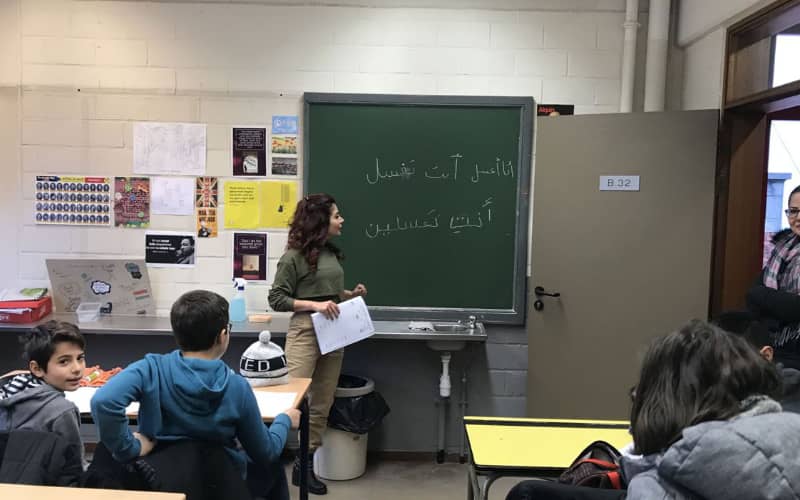Belgian Politician Sparks Controversy Over Arabic Teaching in Molenbeek Schools

Teaching in Arabic in Molenbeek is not to the liking of Vooruit president Conner Rousseau. The latter says he does not feel at home there and also calls for improving conditions in these neighborhoods by investing in language, childcare and education.
Vooruit president Conner Rousseau persists: "I don’t feel at home in Molenbeek." He had made this statement in a controversial interview last April. "In Brussels, due to the shortage of teachers, there are people teaching in Arabic because they don’t speak French. Unacceptable," he had added. At the invitation of his colleague, Vooruit alderman Jef Van Damme, Conner Rousseau visited Molenbeek, and reiterated the same statement.
"I don’t feel at home in Molenbeek, but it wasn’t a personal attack on these people. My message is that we need to improve conditions in these neighborhoods by investing in language, childcare and education. I visited a Dutch-speaking school where a teacher told me they should find volunteers to act as interpreters at the parents’ meeting," he said in an interview with the Belgian Dutch-language weekly Humo.
The Vooruit president also returned to his statements about the riots that had broken out after Belgium’s elimination by Morocco (0-2) in the 2nd round of the 2022 Qatar World Cup. He had described the rioters as "shit" and "black sheep from problem neighborhoods who should have more opportunities and prospects." "These young people have a lot of opportunities. The problem is that these guys feel untouchable. The judicial power must act against this," Flemish Justice Minister Zuhal Demir (N-VA) had retorted.
Rousseau in turn replied to the minister during his interview with Humo. "Zuhal Demir says everyone has opportunities here and should seize them. I invite her here again, because apparently she hasn’t understood. Even in this rich country, place of birth still makes a big difference. If you have origins, don’t speak Dutch at home, and can never ask your parents for help with homework, you have fewer opportunities."
Related Articles
-

Fugitive Faces Justice: Moroccan Man Retried for Brutal Car Deal Murder in Belgium
2 September 2025
-

Belgium Poised to Recognize Morocco’s Sahara Sovereignty by 2025
2 September 2025
-

Pro-Palestinian Rally in Brussels Turns Violent: Demonstrator Stabbed, Claims Targeted Attack
26 August 2025
-

Energy Giant TotalEnergies Outsources to Morocco, Jeopardizing 163 Belgian Jobs
25 August 2025
-

Notorious Speed Demon ’Adil.gofast’ Released: Moroccan Influencer Faces 17-Year Driving Ban After 250 km/h Stunts
21 August 2025